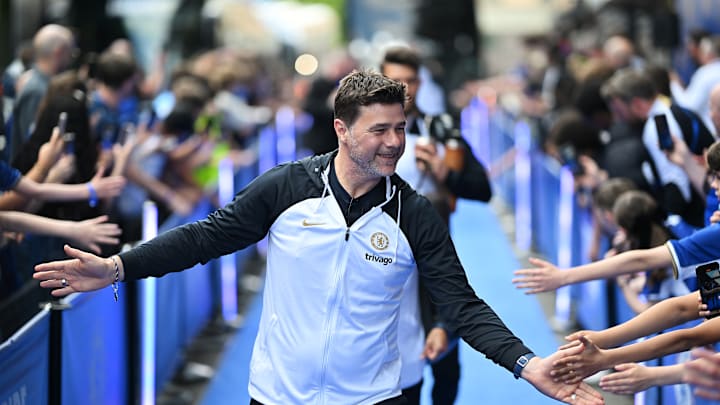Chelsea and manager Mauricio Pochettino have parted ways by mutual consent after just one season. The decision comes despite the team's recent upturn in form and Pochettino's strong rapport with the players.
Under Pochettino's guidance, Chelsea climbed to sixth place in the Premier League, securing European football and marking the best run of league results under the new ownership of Todd Boehly and Clearlake Capital. The Blues also reached the Carabao Cup final and the FA Cup semi-finals, showcasing competitive performances in domestic cup competitions.
Unlike previous managerial exits at Chelsea, Pochettino's departure is not attributed to losing the dressing room. The players had a strong affinity for him, often expressing their support during challenging times. However, this rapport was not enough to maintain the partnership between the club and the manager.
The mutual decision to part ways highlights the growing tensions between the club's ownership and management. Since Boehly and Clearlake Capital took over, Chelsea have seen a revolving door of managers, with Pochettino being the sixth permanent manager in five years. This frequent turnover has raised questions about the owners' decision-making and its impact on team morale.
Reports suggest that internal disagreements played a significant role in the mutual decision to part ways. Co-owner Behdad Eghbali was reportedly never fully convinced of Pochettino's fit for the club and did not support his transfer recommendations. The failure to challenge for Champions League qualification and losing the Carabao Cup final to Liverpool's youth team also did not help solidify Pochettino's position.
Chelsea are now on the hunt for a new manager, with names like Ipswich's Kieran McKenna and Sporting's Ruben Amorim being considered. The club is keen on appointing a young, progressive head coach who aligns with their vision of modernising the team. However, the frequent managerial changes may deter potential candidates, who might view the Chelsea job as increasingly unstable.
Pochettino's departure also underscores the challenges of managing a club with a massive squad overhaul. Chelsea spent over £400 million on new signings, many of whom were under 25, and sold nearly £250 million worth of players, including key senior members. This massive squad overhaul posed a significant challenge for Pochettino, who had to integrate a young and inexperienced team.
The decision for Pochettino to leave marks a pivotal moment for Chelsea, raising critical questions about the club's direction under its current ownership. The next managerial appointment will be crucial in determining whether Chelsea can achieve their lofty ambitions or continue to struggle with instability and inconsistency.
As Chelsea navigate this transitional phase, the challenge will be to find a manager who can not only deliver results but also align with the strategic vision of the owners.
The parting of ways between Chelsea and Mauricio Pochettino has sent shockwaves through the football world, leaving fans and pundits questioning the decision-making process at the club.
As Chelsea begins its search for a new manager, the pressure is on to find the right fit for a team in transition, seeking to establish a new identity and compete at the highest level.
